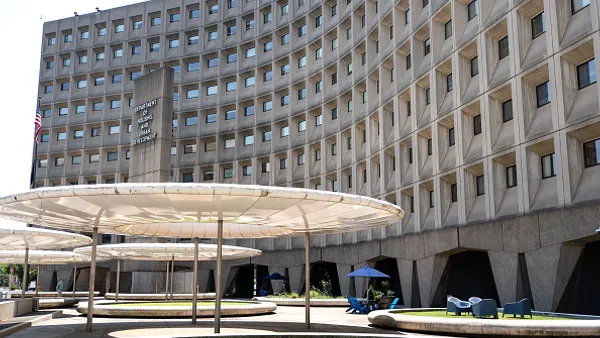Dive Brief:
-
A federal judge in North Dakota on Thursday temporarily halted plans by the U.S. Environmental Protection Agency to enforce a controversial water rule in 13 states.
-
On Friday, however, the EPA started enforcing its new interpretation of a Waters of the U.S. rule everywhere else, saying the court’s action applied only to the states involved in a lawsuit claiming that small bodies of water, like streams and ditches, should not be subject to Clean Water Act regulations.
-
The court said the states are likely to win their lawsuit, which argues that by issuing the rule, the federal government overstepped its authority over state-regulated wetlands and other waters. The states that the court ruling exempts — for now — are: Alaska, Arizona, Arkansas, Colorado, Idaho, Missouri, Montana, Nebraska, Nevada, New Mexico, North Dakota, South Dakota and Wyoming.
Dive Insight:
“This is a victory in the first skirmish, but it is only the first,” North Dakota Attorney General Wayne Stenehjem said in a statement. “There is much more to do to prevent this widely unpopular rule from ever taking effect.”
In fact, the 13 states were not the only ones to seek legal relief from the rule. The National Association of Home Builders and six other national trade associations also sued the federal government in an effort to overturn the new "waters of the United States" rule that expanded the scope of the Clean Water Act.
At issue are bodies of water as small as roadside ditches and ponds that, under the EPA’s expanded definition, would require builders, farmers, ranchers, manufacturers and others to comply with federal regulations and paperwork requirements before they can use that property.
“This rule will needlessly raise housing costs and add more regulatory burdens to industries already struggling in a recovering economic environment,” NAHB Chairman Tom Woods said in a statement. He said the NAHB has renewed its call for the EPA to “immediately withdraw this rule.”












